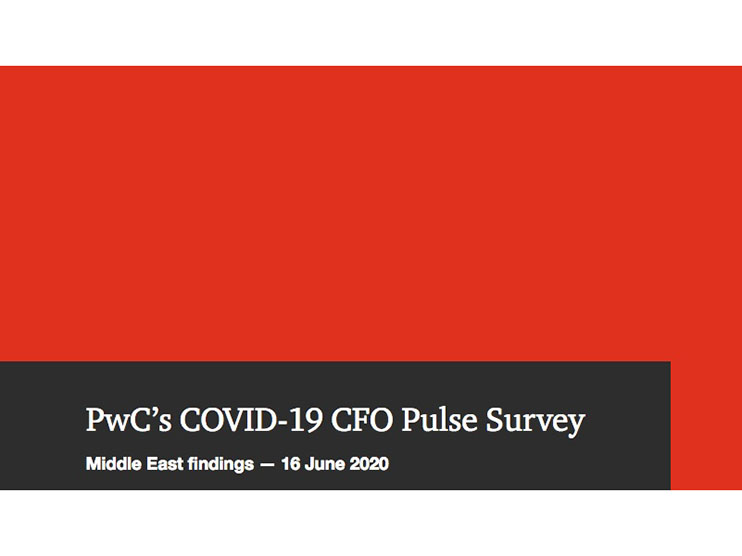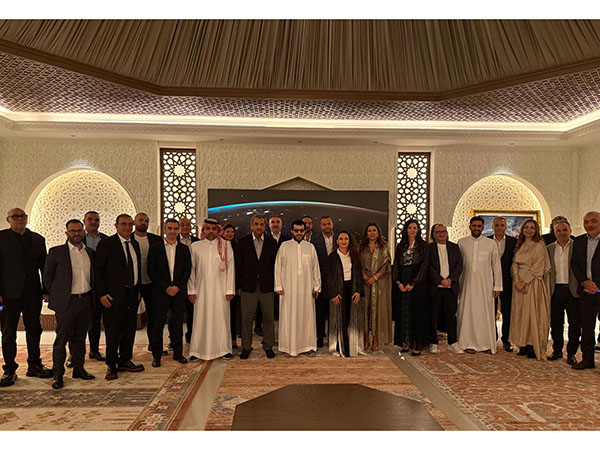News - News In Brief
Concerns around a global economic downturn and any future outbreaks are high for Middle East CFOs, according to PwC survey
June 16, 2020

Top Middle East findings:
• Increased recovery timelines and financial impact
• Concerns around a global economic downturn and any new waves are high
• Rebuilding revenues and managing costs remain focus
Increased recovery timelines and financial impact
As organisations have increasingly realised the effects of COVID-19, the recovery timeline continues to increase with each wave of our survey. The proportion of Middle East CFOs expecting recovery to take three months or more has increased to 72% – compared to 66% five weeks ago.
Aligned with the increasing recovery timelines, a slightly higher proportion of regional finance leaders expect their company’s revenue and/or profits to decrease – 89% compared to 86% five weeks ago. This is also higher than the global average of 81%.
Concerns around a global economic downturn and and any new wave are high
When asked about concerns around returning to the workplace and operating in a changed business environment global and regional finance leaders all identified the same top three factors – although with different rankings. The impact of a global economic downturn ranked highest both globally and in the Middle East. The second highest area of concern in the region was the financial impact of COVID-19 and its effects on results of operations, future periods, and liquidity and capital resources, with 55% of CFOs citing it – compared to 47% globally. Fears around a new wave of COVID-19 completes the top three, with the Middle East (53%) marginally lower than the global average (58%), and 49% in the UAE.
Concerns around a decrease in consumer confidence reducing consumption is significantly higher in the UAE (54%) compared to just 35% in the Middle East and 31% globally.
Rebuilding revenues and managing costs as we move forward
61% of executives in the region are focused on their pricing strategies, such as offering different payment terms or increasing/decreasing the price of their offering, and 53% are making changes to their product or service by offering new, enhanced, or paired-down solutions. Globally 63% of CFOs are focused on the latter.
The economic impact of COVID-19 has forced organisations to rethink their business models, which has, in some cases, been a catalyst for rapid innovation to exploit new market opportunities. We see a noticeable difference in the level of confidence of UAE CFOs when identifying new revenue opportunities. CFOs in the UAE are also looking to make changes to their geographic footprint to rebuild or enhance revenue – 51% are considering entering new markets or leaving markets they currently operate in to do so.
Cost containment and deferral or cancellation of investments as a result of COVID-19 are still high on the agenda for CFOs globally. In the Middle East this trend continues to strengthen, with 96% of CFOs considering implementing cost containment measures compared to 87% in the previous survey.
Growing confidence in return to work strategies
Middle East CFOs are very confident about their return to work strategies, which broadly aligns with the global average. Meeting customers' safety expectations and providing a safe working environment is at the top of their priorities. Interestingly, the robust processes that organisations have implemented over the last few months have left CFOs feeling particularly confident in their ability to provide a clear response and shut down protocols, if cases begin to rise or if there was a new wave of infections.
Measures being put in place when transitioning back to the workplace remain fairly consistent with previous weeks of PwC’s CFOs sentiment tracking survey. The outlook for those who enjoy remote working continues to look a little less rosy for those in the region, with CFOs in the Middle East still significantly less likely to make remote working a permanent option.
Stephen Anderson, Middle East Markets and Strategy Leader, notes: “Resilience and agility to be able to weather the present economic conditions will remain key drivers as organisations look ahead. As the region transitions to the new normal, organisations must not forget how they have been able to adapt under extreme economic pressure and harness the lessons learnt as they look towards the future.
It is interesting to note that our survey results consistently show that regional CFOs are increasingly more likely to adopt automation and new ways of working, with 62% citing this compared to 50% globally in this latest survey.”













